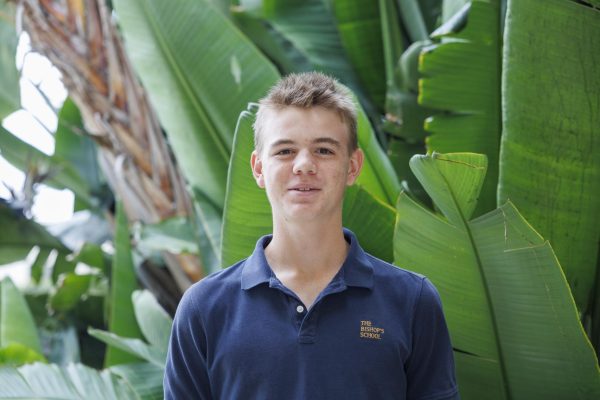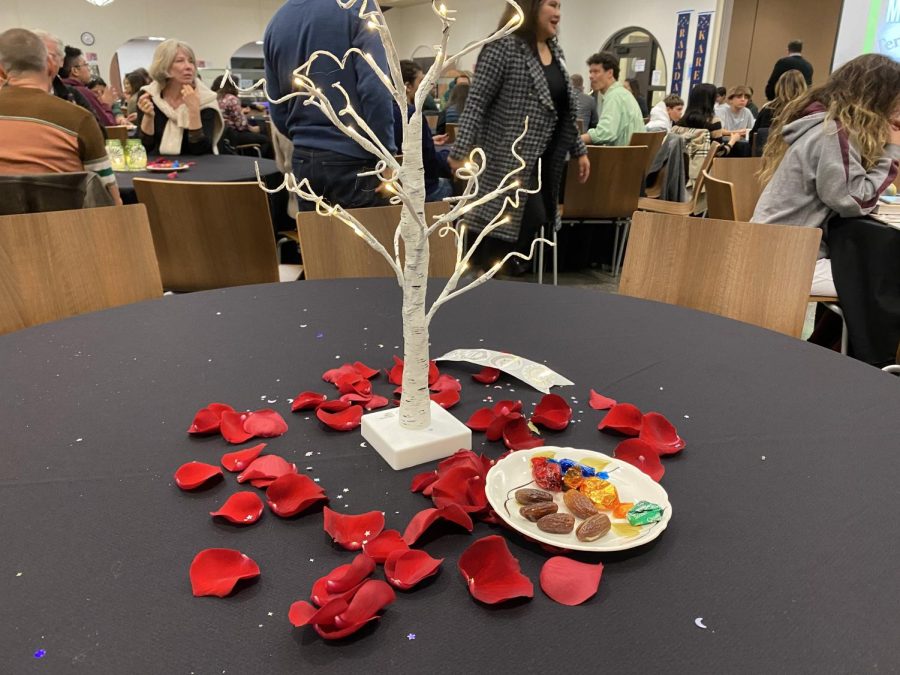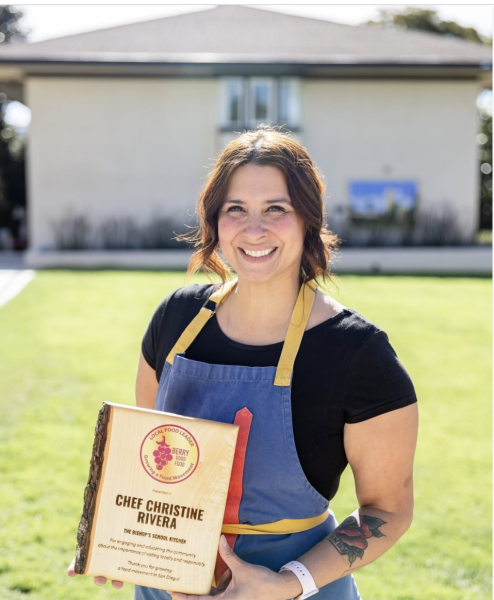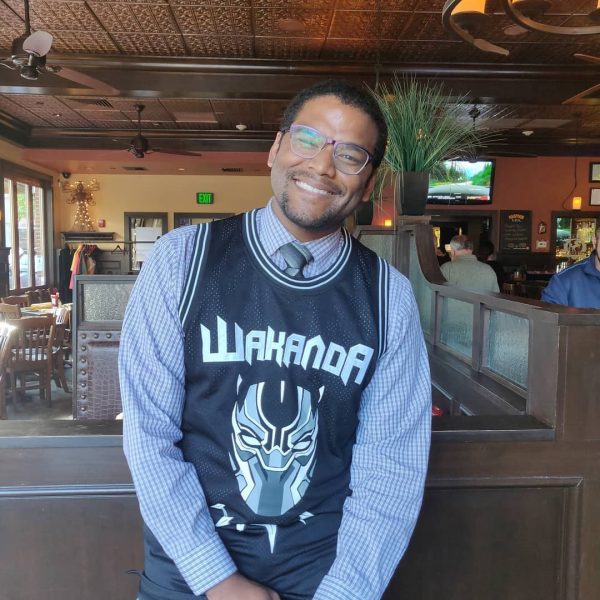Breaking the Fast: Bishop’s Hosts an Iftar Dinner
Full of food, prayer, and games, Bishop’s hosted a guided Iftar dinner for the first time last week.
At the table, next to the decor of lighted trees and flowers, sat a small plate of traditional dates, hard candies, and chocolates. After sundown, this would be the food that everyone would break the fast with.
“Ashhadu an la ilaha illa Allah!” This universal Islamic call to prayer means, “I bear witness that there is no god except the One God.” The call rang out in the cafeteria on April 12, 2022, as 100 members of the Bishop’s community — students, administrators, and families — sat in the well-decorated cafeteria full of food, candles, and Islamic decor to engage in Bishop’s first guided Iftar dinner.
Iftar refers to the evening meal after sundown that Muslims have following a day of fasting. This happens every day from March 22 to April 20, during the month of Ramadan, a prominent holiday in the Muslim community. During this holy month, followers of Islam fast, introspect, and pray, as a way to celebrate and reflect on the month during which Muhammad, Islam’s divine manifestation of God, received the initial revelations of the Quran, the holy book for Muslims. All these meals have many traditions, with each tradition holding deep meaning.
This year, for the first time, Bishop’s hosted a guided Iftar dinner open to all members of the Bishop’s community to learn, celebrate, and take part. Led by Religion and Ethics and Global Education Initiative teacher Dr. David Moseley, the Reverend Ms. Nicole Simopoulos-Pigato, and Muslim Bishop’s parents, the event was a huge success, with a variety of different foods, games, and speakers showing many aspects of Ramadan and Islam as a whole.
Throughout the evening, many speakers talked about what Islam, Ramadan, and an Iftar is. First, Dr. Moseley spoke about Islam, and specifically the five pillars of Islam — declaration of faith (shahada), prayer (salah), alms-giving (zakat), fasting (sawm) and pilgrimage (hajj) – that constitute the basic norms of Islamic practice. Notably, alms-giving, which is charity to the community, is especially important during Ramadan, because it allows Muslims to cleanse their wealth after the fasting month while giving directly to the poor. Aiden Afshar (‘25), a student attending the event, said that all the speeches, and this one in particular, “gave a great window into what role religion, and Islam specifically, play in our school’s culture.”
Another notable speech was by Muslim student Kenan Begovic (‘24), who emphasized the importance of Ramadan as an opportunity to cleanse and reconnect with his religion. Through many days of fasting, and continuing prayer, this holiday — not coincidentally in the spring — is a way to regrow one’s relationship with God, Muhammad, and Islam as a whole. Ben Hollingshead (‘24), a student who attended the Iftar, said,“Kenan’s talk inspired me and opened my eyes to the Muslim Community’s experience with Ramadan,” and he was “so glad” that Kenan spoke about his experiences.
Then, after sundown, the tradition of breaking the fast began. Before the proper dinner, Muslims have a small sweet to initially mark the ending of fast until sunrise. At this Iftar, every table had a plate of traditional dates, hard candies, and chocolates to choose from.
Next, everyone partook in a modeled call to prayer that Muslims do five times a day. This prayer, led by a Bishop’s parent, went on for about five minutes. During this time, the leader said words in Arabic, almost singing as if it was a melody. He proclaimed Allah as God, and Muhammad as his divine prophet. He told us to pray to Allah, which embodied the entire meaning of his words — a call to prayer.
Ben said that parts of the event like the prayer reminded him that “it is such a privilege to go to Bishop’s where we can see all these diverse viewpoints, and learn new things through these shared experiences Bishop’s offers,” such as the Iftar dinner.
Next, it was time to eat. The food, a mix of homemade dishes and ones catered by Sufi Mediterranean Cuisine, had a variety of Persian and Middle Eastern dishes, such as beef kabobs, hummus, and baklava. Max Payne (‘25) enjoyed the food the most, remarking that “trying new foods with others is so fun, and delicious!” Pars Findikoglu (‘25), who used to live in Turkey, added that “I had probably 20 Turkish Delight candies, and it brings me back to my days living in Turkey!”
Finally, after dinner, there was a Kahoot to test the guests on everything told to them about Ramadan and Islam at the dinner. With questions ranging from when Islam would become the leading world religion, to where Muhammad is buried, Kenan and his partner Jonas Pfefferman (‘24) dominated the game and won, getting gift baskets as the prize. Jonas remarked that he was “very pleased with winning, and showcasing what he had learned.” Kenan added that, “Kahoot was a great way to round out the evening.”
Overall, students, faculty, and families alike had a great time at this event. Aiden concluded that he had “no idea that Bishop’s had such a strong Islamic community” and was “so pleased with seeing the community” at the dinner. He finished by saying that he “hoped they do it again next year,” because it was “really fun, educational, and engaging.”
So from food to games, and prayer to speakers, the event saw great success in educating and celebrating Ramadan with the Bishop’s community. Hopefully events like this guided Iftar dinner can grow as a new Bishop’s tradition that continues to spread everyone’s diverse cultures for the future years to come.


Ben is a senior and Editor-in-Chief of The Tower. This is his fourth year on staff and second year as an editor, having previously been Graphics Editor....






